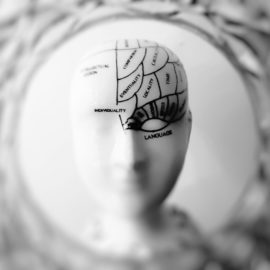

This article is an excerpt from the Shortform book guide to "The 5 Elements of Effective Thinking" by Edward B. Burger and Michael Starbird. Shortform has the world's best summaries and analyses of books you should be reading.
Like this article? Sign up for a free trial here.
How can you turn mistakes into opportunities? How can you keep mistakes from stopping your progress?
Edward B. Burger and Michael Starbird argue that failure is a powerful teaching tool and a vital part of achieving your goal. Don’t view mistakes as hindrances but instead as opportunities for growth. A mistake gives you a specific thing to address: Why was this wrong?
Read more to learn why it’s okay to make mistakes.
It’s Okay to Make Mistakes
The authors note that the ability to do something right takes hard work, study, and practice, and you shouldn’t expect yourself to do it right immediately. If you do, you’ll be more likely to give up and not achieve your goal. Therefore, it’s okay to make mistakes. If two students take a test and fail, the student who makes an effort to understand what they got wrong and why will learn a lot more than the student who gives up on trying because they felt like they should have gotten it right the first time.
(Shortform note: Much of the way we view failure is a result of how we were taught to view it as children. Berating your child for making a mistake will cause them to want to avoid making mistakes as much as possible and give them a negative association with failure, which will then hinder their growth.)
The authors write that there are some specific techniques you can employ to prevent mistakes from stopping your progress:
1. Take the first step in solving your problem, even if that step is wrong. Getting started can be the hardest part when you don’t feel like you know what you’re doing. You may feel lost as to where to begin. When you accept that you’ll make mistakes, you’re more likely to start an intimidating project that you may have been putting off out of a fear of failure.
(Shortform note: In The Subtle Art of Not Giving a F*ck, Mark Manson notes that failure can be physically painful, which is one reason people hesitate to start projects that may not be successful. Like Burger and Starbird, Manson also emphasizes the importance of taking that first step, even if it’s a misstep, and adds that the pain you may experience is an essential part of learning.)
2. When you make a mistake, don’t let it block your progress. Identify what went wrong and how to fix it. If you can’t, and the problem seems overwhelming, let it go and work on an easier problem that you feel you can learn from. Don’t fixate so heavily on figuring out a mistake you don’t understand to the point that it impedes your progress.
(Shortform note: Our brains’ physiology works against us in this regard. Our brains work harder and take longer to process negative information than to process positive information, causing the negative information to leave a stronger impression. To avoid becoming overly fixated on our failures, experts recommend removing our emotional attachments to them and allowing the failure to teach us without dwelling on it excessively.)
3. Don’t beat yourself up. Understand that experiencing failure doesn’t make you a failure; it just makes you human. If you make a mistake that leads to success, don’t penalize yourself. Recognize that it was an important step in your development and that it will benefit you in the future.
In addition, the authors stress that you shouldn’t beat other people up for their mistakes either. Learning should be rewarded, not punished. For example, they suggest that if a student makes an attempt on a test and gets a low grade but shows great improvement in their final exam, it might be productive to allow that final grade to take the place of that early low grade, demonstrating to the student that learning, not immediate mastery, is the goal.
(Shortform note: Burger has spoken and written about “math phobia,” which he feels is the result of negative or traumatic experiences in mathematics education. Receiving a failing grade is undeniably discouraging, and the idea that this could cause a “phobia” of the subject fits with the authors’ suggestion that helping a student frame a mistake as an opportunity will make them view the subject more positively. Choosing to frame your own mistakes positively instead of chiding yourself can have a similar effect and prevent you from developing an aversion to the subject.)
4. Learn from other people’s mistakes. You can also look beyond your current predicament to gain insight from others’ work. Has someone else already tried to solve this problem and failed? What mistakes did they make that you can learn from (so you can skip making those mistakes yourself)?
(Shortform note: Some mistakes can have dire consequences, especially when learning on the job. A brain surgeon doing an operation might make a mistake that could teach them a lot, but the costs could be fatal. In situations with such high stakes, it would be particularly vital to learn from others’ mistakes as much as possible before making an attempt yourself.)

———End of Preview———
Like what you just read? Read the rest of the world's best book summary and analysis of Edward B. Burger and Michael Starbird's "The 5 Elements of Effective Thinking" at Shortform.
Here's what you'll find in our full The 5 Elements of Effective Thinking summary:
- The 5 principles for learning to think effectively
- What it means to learn beyond memorizing
- Why you need to be willing to change if you want to learn






